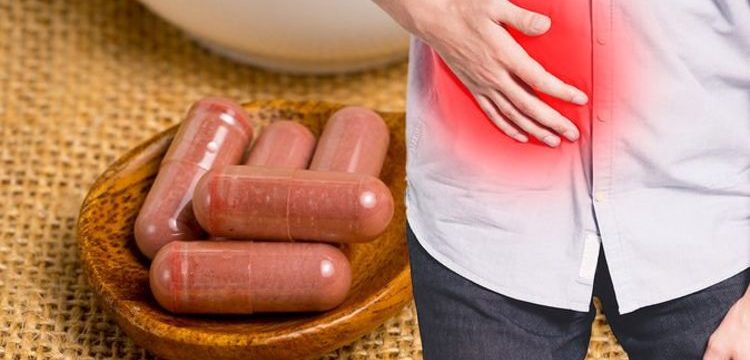High cholesterol: Nutritionist reveals top prevention tips
We use your sign-up to provide content in ways you’ve consented to and to improve our understanding of you. This may include adverts from us and 3rd parties based on our understanding. You can unsubscribe at any time. More info
Supplements are an attractive alternative to prescription medications for many people. However, you shouldn’t assume natural extracts are any safer. In fact, taking them may even result in more adverse outcomes, warned doctors writing in the journal BMJ Case Reports.
Red yeast rice supplement has the potential to cause liver damage, the doctors warned, after a 64-year old woman developed acute liver injury after six weeks of taking the supplement.
Red yeast rice is a supplement made by fermenting steamed rice with food fungus, and is often used to lower high cholesterol as an alternative to statin medication.
But it contains monacolin K, the same active chemical found in the cholesterol lowering drug lovastatin, and therefore carries the same risk of liver damage, said the authors.
In this particular case, a 64-year old woman was admitted to hospital with symptoms of hepatotoxicity (liver damage) six weeks after starting a 1200 mg per day of red yeast rice supplement to lower her cholesterol, due to being hesitant about taking statins.

For two weeks, the woman had been experiencing fatigue, bloating and feeling full sooner than usual.
And her urine was darker, her stools were lighter, and she had recently developed jaundice.
She did not report any liver disease, blood transfusion, contact with anyone ill or recent travel.
And apart from B12 injections for anaemia, she did not take any medication.
DON’T MISS
Supplements: The vitamin that hikes risk of bleeding in the brain [ADVICE]
Diabetes: The oil that drives down high blood sugar [TIPS]
Visceral fat: The creamy food to reduce belly fat [INSIGHT]
The woman was a non-smoker, drank two glasses of red wine every night, and had an active lifestyle.
A liver biopsy showed findings consistent with acute drug induced liver injury (DILI). While alcohol intake was considered and may have contributed to her disease, the nature and timeline of it suggests DILI was the cause, wrote the authors.
The woman was treated with steroids and her liver function was monitored weekly after she was discharged. She was advised not to use the supplement again.
This report refers to just one case, and more research is needed to establish any possible association and mechanism of toxicity.

But several cases of red yeast hepatotoxicity have been previously documented, wrote the authors, and these have shown that recovery may take months after discontinuing.
“As this case demonstrates, red yeast rice supplement has the potential to cause severe adverse effects, such as acute liver injury,” said the authors.
And they warn that these effects “are difficult to pre-empt, in part because the concentration of monacolin K in red yeast rice is not regulated”.
As a result, they called for more regulation of supplements to prevent harmful side effects.

“Supplements are not necessarily safer than prescription medications, and physicians and patients should research their adverse effect profile before using them or approving their use,” they concluded.
What other health bodies say
The Mayo Clinic says: “Red yeast rice is capable of lowering blood cholesterol levels and total blood cholesterol levels.
“While the supplement is generally considered safe, it might carry the same potential side effects as statin cholesterol drugs.”
Source: Read Full Article
